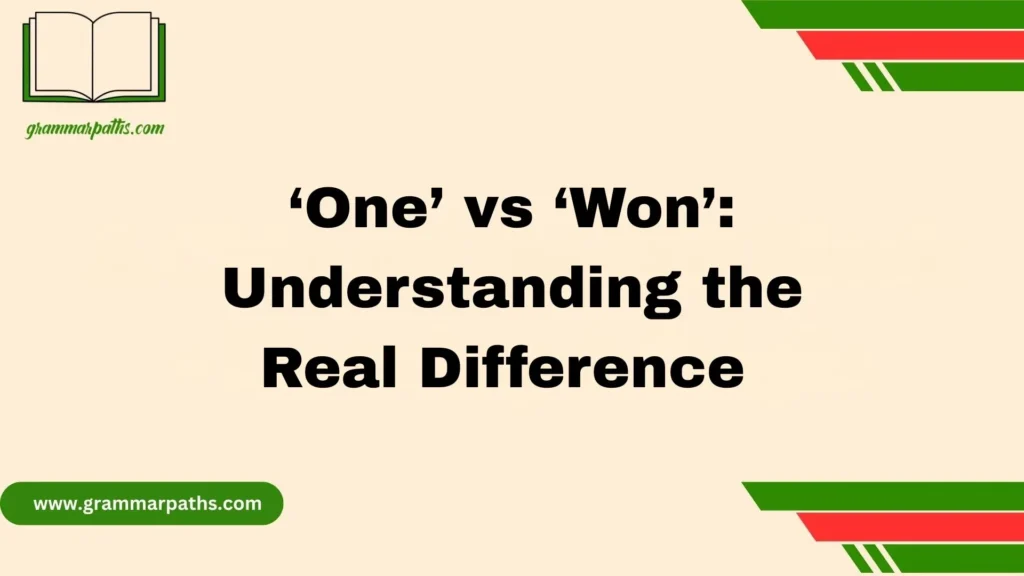I once met Alex, a young employee in an office, whose boss quietly offered a bonus in cash, under the table, to avoid taxes. The tempting decision left him worried about trouble with the law, since even a hidden risk can change everything. The Under the Table Idiom Definition makes its meaning very clear—it’s about being paid secretly, without official records or proper paperwork, often leading to illegal outcomes that may appear attractive but carry weighty consequences.
The phrase has long been used in literature and storytelling, where it often hints at secrets, lies, and intrigue. Characters face choices and dilemmas when presented with a practice that might seem harmless but implies shady or sneaky dealings. Its usage in sentences across common saying traditions connects the idiom with broader cultural narratives, where contraband might be passed underneath a table during a hidden transaction.
By the mid-twentieth century, the idiom had taken on an adjective form, often hyphenated as under-the-table before a noun. This expression still describes secretive behavior and is an easy way to capture practices that are widely known yet socially frowned upon. Over decades, it has remained a part of everyday speech, carrying with it the same connotations of sneaky exchanges and hidden intent.
Definition of “Under the Table”
At its core, the phrase “under the table” describes actions done secretly, unofficially, or illegally.
- Literal meaning: Something physically hidden beneath a table.
- Figurative meaning: Something hidden from public knowledge—typically money, payments, or deals.
Most dictionaries agree on the idiom’s dual use:
- It can refer to bribery—paying someone secretly to gain an unfair advantage.
- It can describe unrecorded employment or payments, often done in cash to avoid taxes.
👉 Example:
- “The company paid him under the table so they wouldn’t have to report it to the IRS.”
- “She slipped the waiter an extra $20 under the table for faster service.”
The phrase has a slightly shady tone. Unlike “under the radar,” which can be neutral, “under the table” almost always implies wrongdoing.
Origins and History of the Idiom
The idiom traces back to the early 20th century in America. Before then, the literal image of a table had long been associated with negotiation, dining, and transactions. Doing something under the table naturally implied hiding it from view.
Historical Milestones:
- 1920s–1930s: During Prohibition, under-the-table deals flourished in speakeasies. People paid bartenders, police, and suppliers quietly to keep illegal liquor flowing.
- 1940s–1950s: The phrase became widely associated with bribes in politics and business. Newspaper reports often highlighted officials caught taking “under-the-table” money.
- Modern Era: Today, the idiom is most often linked to off-the-books employment, especially in cash-based industries like construction, food service, and domestic work.
The imagery of hiding cash or favors beneath a table remains powerful. It perfectly conveys something concealed yet close at hand.
Common Meanings and Interpretations
The under the table idiom has three main interpretations in American English.
1. Bribery
Handing someone money secretly to influence their decision.
- Example: Paying a building inspector to overlook code violations.
2. Illegal Employment or Compensation
Paying workers in cash, without reporting wages for tax or legal purposes.
- Example: A restaurant pays kitchen staff under the table to cut costs.
3. Hidden Activity or Secrecy
Any action done discreetly and without official acknowledgment.
- Example: Negotiating a side deal during business talks.
Everyday Scenarios in the US
The idiom pops up in a variety of real-life American settings.
Common Examples:
- Domestic work: Babysitters, housekeepers, and nannies often get paid cash under the table.
- Construction and manual labor: Some contractors avoid taxes and paperwork by hiring off-the-books workers.
- Service industry: Bartenders or waiters may accept cash bribes for quicker seating or better service.
- Politics and sports: Cases of bribery scandals often use the phrase “under the table” in headlines.
Pop Culture References:
- In The Sopranos, mobsters often pay associates under the table to avoid detection.
- News reports on corruption frequently include this phrase because it instantly signals secretive money exchanges.
👉 Case Study:
In 2019, the IRS reported that the US loses over $100 billion annually to unreported income, much of it tied to under-the-table work. This demonstrates how common and costly the practice is.
Legal and Ethical Implications
In the United States, “under the table” almost always connects to illegality. Paying workers without reporting wages is considered tax evasion and can carry serious consequences.
Legal Issues:
- Employers risk fines, back taxes, and even criminal charges.
- Workers lose protections like workers’ compensation, unemployment benefits, and Social Security contributions.
IRS Perspective:
The Internal Revenue Service (IRS) labels under-the-table wages as “unreported income.” Both payer and recipient are liable.
Ethical Implications:
- Fairness: Legal workers paying taxes may resent those earning untaxed income.
- Exploitation: Workers paid under the table are often more vulnerable to wage theft and unsafe working conditions.
👉 Table: Consequences of Under-the-Table Employment
| Party Involved | Short-Term Benefit | Long-Term Risk |
| Employer | Saves money on taxes, avoids paperwork | Fines, audits, potential jail time |
| Worker | Quick cash, no deductions | No legal protections, risk of non-payment |
| Government | None | Loss of tax revenue, weakened labor systems |
Cross-Cultural Usage & Global Interpretations
The under the table idiom exists in various forms across the globe, though cultural views differ.
Global Equivalents:
- Spanish: “Dinero negro” (black money).
- French: “Travail au noir” (work in the dark).
- Chinese: “私下交易” (private transaction).
In many countries, informal cash economies are widespread. However, in the US, the phrase strongly implies law-breaking, especially tax evasion.
👉 Interesting Note:
In some cultures, small under-the-table payments are seen as normal “facilitation fees.” In America, however, they are largely associated with corruption.
Related Idioms & Expressions
Several idioms overlap in meaning with “under the table.”
Common Comparisons:
- Off the books: Specifically about unrecorded work or income.
- Under the radar: Hidden, but not necessarily illegal.
- Behind closed doors: Private or secretive discussions.
- Slip someone a little something: Informal phrase for a discreet bribe.
👉 Comparison Table:
| Idiom | Meaning | Tone/Connotation |
| Under the table | Hidden, often illegal | Negative, shady |
| Off the books | Unreported, unofficial | Negative/legal risk |
| Under the radar | Hidden from notice | Neutral/strategic |
| Behind closed doors | Private, secretive | Neutral/slightly suspicious |
Linguistic Nuances
Why does the phrase use a table? Because a table is symbolic of public interaction—meals, meetings, and transactions happen on top of it. Doing something under it symbolizes hiding from view while still being part of the interaction.
Other “Object-Based” Idioms:
- “Sweep it under the rug” – conceal a problem.
- “On the table” – open for discussion.
- “Bring to the table” – contribute value.
These idioms show how ordinary objects become powerful metaphors in English.
Modern Relevance
The under the table idiom remains extremely relevant in today’s economy.
Gig Economy Impact:
With the rise of short-term and freelance jobs, under-the-table arrangements have increased. Some gig workers prefer cash payments to avoid high platform fees or taxes.
Political Usage:
News headlines often highlight under-the-table dealings in corruption scandals, from local government to international politics.
Public Attitudes:
- Some see under-the-table work as a survival tactic in tough economic times.
- Others view it as unfair tax evasion that hurts honest workers.
👉 Example:
During the COVID-19 pandemic, many laid-off workers turned to side jobs, often paid in cash under the table, because they lacked formal employment opportunities.
Practical Usage Guide for Learners
If you’re learning English, knowing how to use idioms naturally is key.
Correct Usage:
- Always use “under the table” for secretive or shady actions.
- Works best in informal conversation.
Common Mistakes:
- Don’t confuse with “under the radar” (means unnoticed, not illegal).
- Avoid literal use unless you actually mean something beneath a piece of furniture.
Sample Dialogues:
- Friend A: “How did you get those tickets?”
- Friend B: “I paid the guy under the table. He held a few for me.”
- Worker: “Does this job pay officially?”
- Employer: “No, it’s cash under the table. Are you okay with that?”
Conclusion
The under the table idiom paints a clear picture of secrecy, hidden money, and questionable behavior. Its history stretches from Prohibition-era bribes to today’s gig economy side deals. In American English, it almost always implies illegality or ethical gray areas—a warning sign more than a casual phrase.
By understanding this idiom, you’re not just learning language. You’re tapping into cultural views on fairness, law, and morality. After all, idioms are more than words—they’re windows into society’s values and struggles.
FAQs
Q1: What does the idiom “under the table” mean?
It refers to something done secretly, often illegal, like being paid in cash to avoid taxes or skip official records.
Q2: Where did the idiom come from?
It became common in the mid-twentieth century, evoking the image of contraband being passed underneath a table out of sight.
Q3: Is “under the table” always negative?
Not always. It can be used casually in movies or conversations to hint at secrets or hidden actions, though in real life it usually suggests risky behavior.
Q4: How is it written grammatically?
When used before a noun, it becomes an adjectival phrase and is often hyphenated as under-the-table.
Q5: Can you give an example?
“Yes, the employer pays some staff directly, in cash, under the table, to save on fees and paperwork.”

Mia Rose is the passionate writer and founder of GrammarPaths.com, a resource dedicated to helping learners master English grammar, idioms, and writing skills with ease. With a deep love for language and years of experience in teaching and content creation, Mia simplifies complex grammar rules into clear, practical guides that readers can instantly apply.












